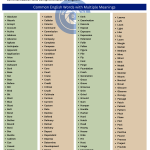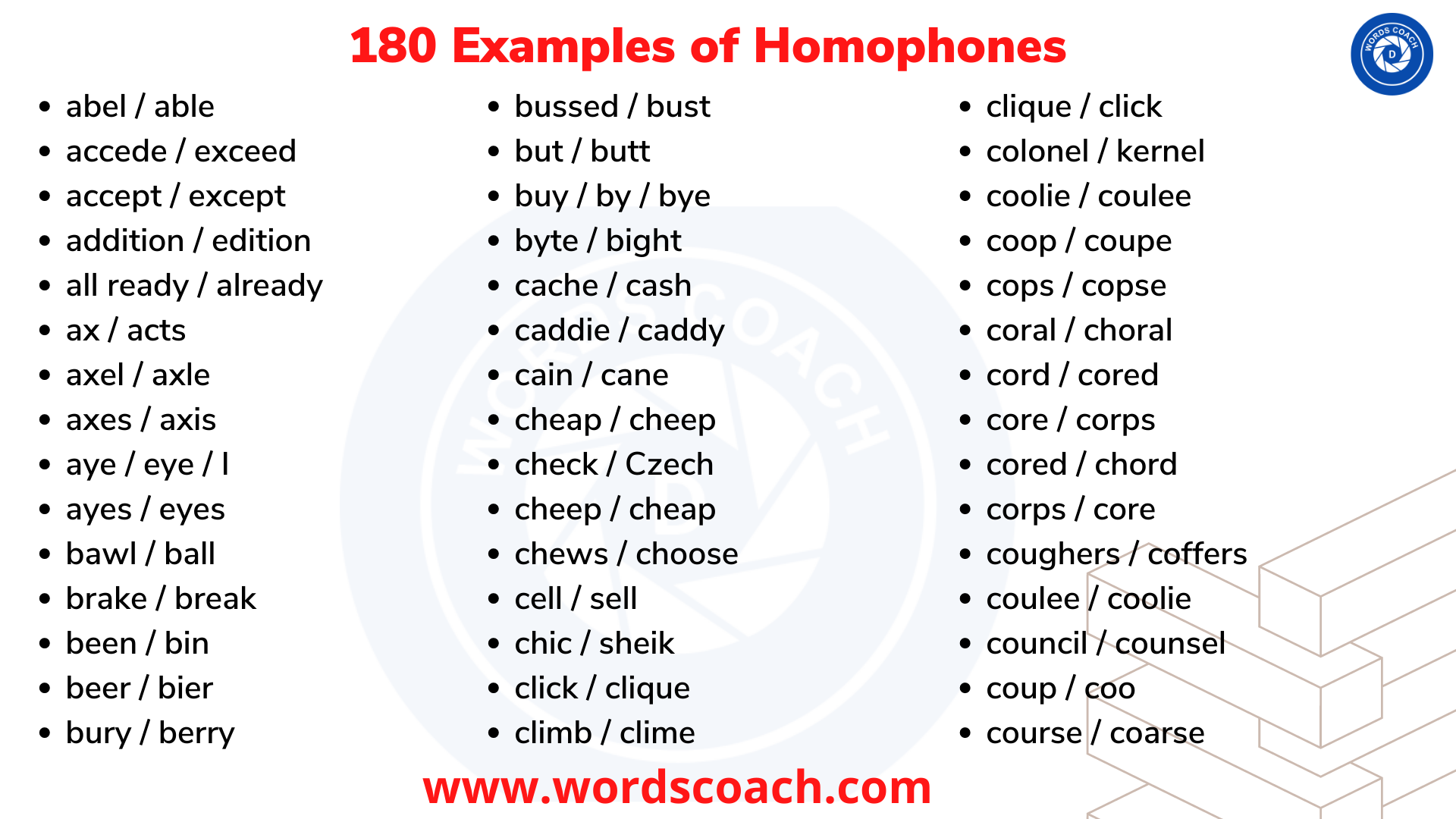Movies Vocabulary
The world of cinema is a captivating realm, transporting us to different realities, tugging at our heartstrings, and igniting our imaginations. But to fully immerse yourself in the magic of movies, understanding the language they speak is essential. So, grab some popcorn, dim the lights, and get ready to learn some essential movie vocabulary!
Movies Vocabulary
Here’s a list of movie vocabulary terms along with their definitions:
Cinematography: The art and technique of film photography, including camera angles, lighting, and composition.
Screenplay: The written script of a movie, including dialogue, actions, and scene descriptions.
Director: The person responsible for overseeing the artistic and creative aspects of a film, including directing the actors and guiding the overall vision of the movie.
Producer: The person or entity responsible for overseeing the financial and logistical aspects of a film’s production, including securing funding and managing budgets.
Actor/Actress: A performer who portrays a character in a film.
Casting: The process of selecting actors to play specific roles in a movie.
Set: The physical location or construction where scenes of a movie are filmed.
Location: An exterior or interior setting where scenes of a movie are filmed, often outside of a studio.
Scene: A unit of action or dialogue that takes place in a specific location and time within a movie.
Shot: A single continuous sequence of film, captured by a camera without interruption.
Take: A single recording of a scene or shot, which may be repeated multiple times until the desired outcome is achieved.
Editing: The process of selecting and arranging filmed footage to create a cohesive narrative in post-production.
Soundtrack: The collection of music and audio used in a film, including background music, dialogue, and sound effects.
Special Effects: Visual or audio effects used to enhance or create elements of a movie that cannot be achieved through conventional means.
Costume Design: The creation and selection of clothing and accessories worn by characters in a film to reflect their personalities, time period, or setting.
Makeup: The application of cosmetics and prosthetics to alter the appearance of actors in a film, including special effects makeup.
Score: The original music composed specifically for a film, often used to enhance the emotional impact of scenes.
Storyboard: A series of illustrated panels or sketches that outline the visual sequence of a movie, used to plan and visualize scenes before filming.
Dialogue: The spoken words exchanged between characters in a film.
Genre: The category or type of a movie, based on its themes, style, and subject matter, such as action, comedy, drama, or horror.
Premiere: The first public screening of a movie, often attended by cast, crew, and invited guests.
Box Office: The total revenue generated by ticket sales for a movie, typically measured during its initial release period.
Sequel: A movie that continues the storyline of a previously released film, featuring the same characters or setting.
Trailer: A short promotional video or advertisement for a movie, typically released before its premiere to generate interest and anticipation.
Oscar: An annual award presented by the Academy of Motion Picture Arts and Sciences to honor outstanding achievements in the film industry, also known as the Academy Award.
Movie Idioms
Here are some movie-related idioms along with their meanings:
- Cut to the chase
- Meaning: To get to the important or exciting part of something without wasting time.
- Example: “Enough with the small talk, let’s cut to the chase and discuss the main issue.”
- It’s a wrap
- Meaning: Used to indicate the completion of something, especially a film or project.
- Example: “After months of shooting, the director finally shouted, ‘It’s a wrap!'”
- The show must go on
- Meaning: To continue with an activity or event, despite difficulties or setbacks.
- Example: “Despite the lead actor falling ill, the director insisted that the show must go on.”
- The big screen
- Meaning: Refers to the cinema or film industry, especially in contrast to television or other media.
- Example: “After years of acting in theater, she finally made her debut on the big screen.”
- Hit the cutting room floor
- Meaning: Refers to scenes or footage that are edited out of a film before its final version.
- Example: “Unfortunately, many of the actor’s scenes hit the cutting room floor due to time constraints.”
- Scene-stealer
- Meaning: Refers to a person or thing that attracts attention and becomes the focus of a scene or event.
- Example: “Her witty remarks were always scene-stealers during our movie nights.”
- On the edge of one’s seat
- Meaning: Feeling excited, nervous, or tense while watching something, often due to anticipation.
- Example: “The suspenseful thriller had everyone on the edge of their seats until the very end.”
- Screen time
- Meaning: Refers to the amount of time a character or actor appears on screen in a film or television show.
- Example: “The lead actress demanded more screen time in the movie to showcase her talent.”
- Leave someone on the cutting room floor
- Meaning: To reject or exclude someone or something, especially from a project or opportunity.
- Example: “Unfortunately, his proposal was left on the cutting room floor when the budget was revised.”
- Behind the scenes
- Meaning: Refers to the activities or operations that occur backstage or out of public view, especially in the entertainment industry.
- Example: “The documentary takes viewers behind the scenes to show the making of their favorite films.”
Movie Quotes
Here are some memorable movie quotes from a variety of films:
“May the Force be with you.” – Star Wars: Episode IV – A New Hope (1977)
“Here’s looking at you, kid.” – Casablanca (1942)
“You can’t handle the truth!” – A Few Good Men (1992)
“I’ll be back.” – The Terminator (1984)
“Houston, we have a problem.” – Apollo 13 (1995)
“I see dead people.” – The Sixth Sense (1999)
“To infinity and beyond!” – Toy Story (1995)
“You talking to me?” – Taxi Driver (1976)
“Why so serious?” – The Dark Knight (2008)
“Frankly, my dear, I don’t give a damn.” – Gone with the Wind (1939)
“I am your father.” – Star Wars: Episode V – The Empire Strikes Back (1980)
“Keep your friends close, but your enemies closer.” – The Godfather Part II (1974)
“There’s no place like home.” – The Wizard of Oz (1939)
“You’re gonna need a bigger boat.” – Jaws (1975)
“Here’s Johnny!” – The Shining (1980)
“Life is like a box of chocolates; you never know what you’re gonna get.” – Forrest Gump (1994)
“It’s alive! It’s alive!” – Frankenstein (1931)
“Hasta la vista, baby.” – Terminator 2: Judgment Day (1991)
“You can’t sit with us!” – Mean Girls (2004)
“I’m king of the world!” – Titanic (1997)
Recommended Movies to Learn English
Watching movies is a great way to improve English language skills, as it exposes you to different accents, vocabulary, and conversational styles.
Here are some recommended movies for learning English:
For Beginners:
- “Finding Nemo” (2003) – An animated film with simple dialogue and clear pronunciation.
- “Toy Story” (1995) – Another animated classic with easy-to-follow conversations and humor.
- “The Princess Bride” (1987) – A beloved adventure film with memorable quotes and understandable language.
For Intermediate Learners:
- “Forrest Gump” (1994) – A heartwarming story with a variety of accents and settings, suitable for practicing listening comprehension.
- “The Social Network” (2010) – A modern drama with fast-paced dialogue and contemporary language.
- “The King’s Speech” (2010) – A historical drama focusing on King George VI’s struggle to overcome a speech impediment, featuring clear enunciation and formal language.
For Advanced Learners:
- “The Shawshank Redemption” (1994) – A gripping drama with rich dialogue and complex themes, ideal for expanding vocabulary.
- “Pulp Fiction” (1994) – A Quentin Tarantino classic with nonlinear storytelling and diverse dialogue, offering exposure to slang and colloquial expressions.
- “Inception” (2010) – A mind-bending thriller with sophisticated language and intricate plot details, challenging advanced learners to follow complex narratives.
Classic Films:
- “Casablanca” (1942) – A timeless romance with iconic dialogue and elegant speech patterns.
- “Gone with the Wind” (1939) – An epic historical drama featuring eloquent language and Southern accents.
- “The Godfather” (1972) – A mafia masterpiece with memorable quotes and powerful performances.
Comedies:
- “The Hangover” (2009) – A hilarious comedy with modern slang and humorous situations, perfect for practicing informal English.
- “Superbad” (2007) – A coming-of-age comedy with witty banter and teenage slang, providing exposure to contemporary language.
- “Mean Girls” (2004) – A teen comedy featuring quotable dialogue and insights into high school culture and language.
British Films:
- “Notting Hill” (1999) – A romantic comedy set in London, offering exposure to British accents and expressions.
- “Trainspotting” (1996) – A gritty drama set in Scotland with authentic Scottish accents and slang.
- “Shaun of the Dead” (2004) – A horror-comedy featuring British humor and colloquial language.
So, the next time you watch a movie, don’t just passively observe. Become an active participant! Use your newfound vocabulary to analyze the film’s technical aspects, discuss your interpretations with friends, and appreciate the artistry that goes into creating a truly captivating cinematic experience. After all, a little knowledge can go a long way in transforming you from a movie watcher to a movie buff!





